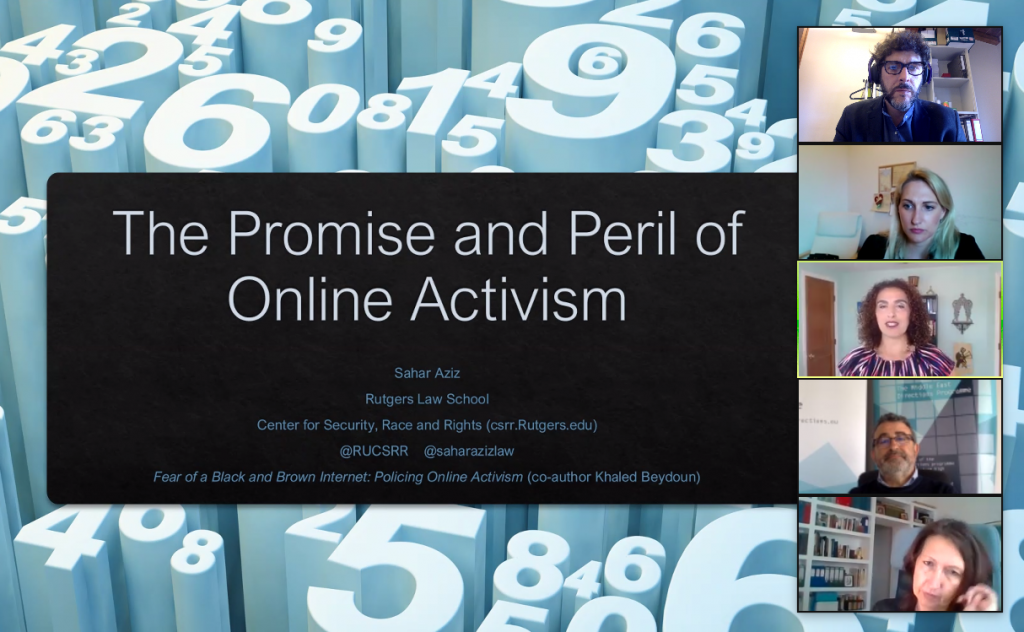
On 4 June 2020 the Middle East Directions Programme of the EUI organised the online roundtable The Promise and Peril of Online Activism During the COVID19 Pandemic with Professor Sahar Aziz, Rutgers University Law School.
In her presentation, Professor Aziz underlines how social media has breathed life into speech and social movements across the world. Barriers of place and time are digitally overcome as political activism transcends borders, continents, and time zones. In the United States, “online activism”—the phenomenon whereby individuals transform social media platforms into forums for organised dissent and advocacy—has revolutionised organising and assembly. Online activism propels longstanding grievances against police brutality of African American communities, discrimination against Muslims, sexual harassment of women, and a myriad of other injustices once limited to traditional forums into global digital spaces in ways previously unimaginable. Online activism has, in short, revolutionised the way people organise and mobilise against state or private injustices – and everything suggests that this phenomenon is still very much in its infancy. Despite these seismic changes, some things remain the same. Government agencies still disproportionately police minority communities’ collective political action. Black and Muslim activists are still presumed suspicious on account of their political dissidence, and oftentimes benign activity gives rise to suspicion. But instead of physically following and listening in on these Black and Brown activists’ lives, law enforcement now surveils their social media accounts, virtual footprints, and online lives. This online footprint is more accessible, and in turn, exposes marginalised groups to modern form forms of monitoring that are more intrusive, and potentially, more injurious. Social media surveillance is an emerging tentacle of the broader phenomenon of “big data policing”. Undercover agents and their proxies create fake accounts that infiltrate online groups focused on #BlackLivesMatter, #MuslimLivesMatter, #NoBanNoWall, and other social justice issues. Local police departments and federal agencies pay millions of dollars to purchase online monitoring software that collects and mines social media content to identify purported suspicious behaviour. Broad terms and coordinated hashtags—such as ISIS, mujahedin, ummah, chapelhill, Blacklivesmatter, Ferguson, and protest—are used to target individual activists.
The roundtable was chaired by Professor Luigi Narbone, Director of the Middle East Directions Programme, EUI.
To know more on the MEDirections Roundtables click here.



